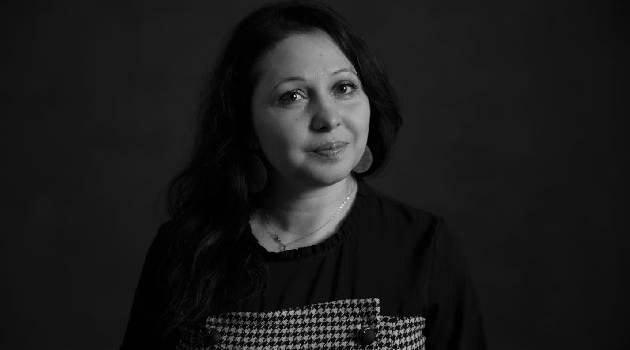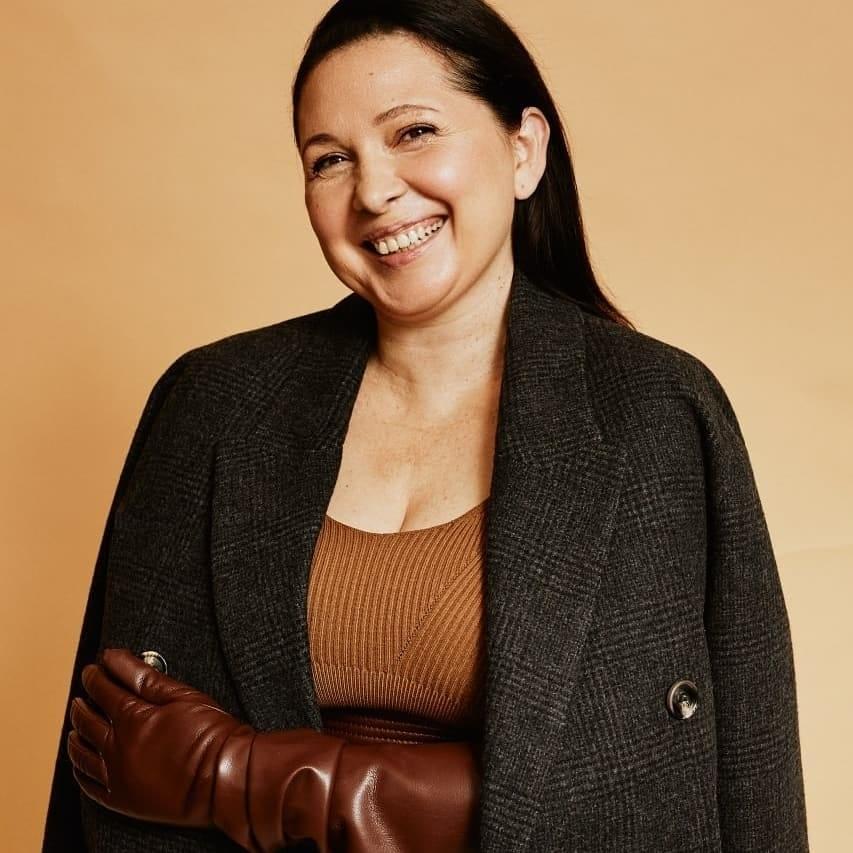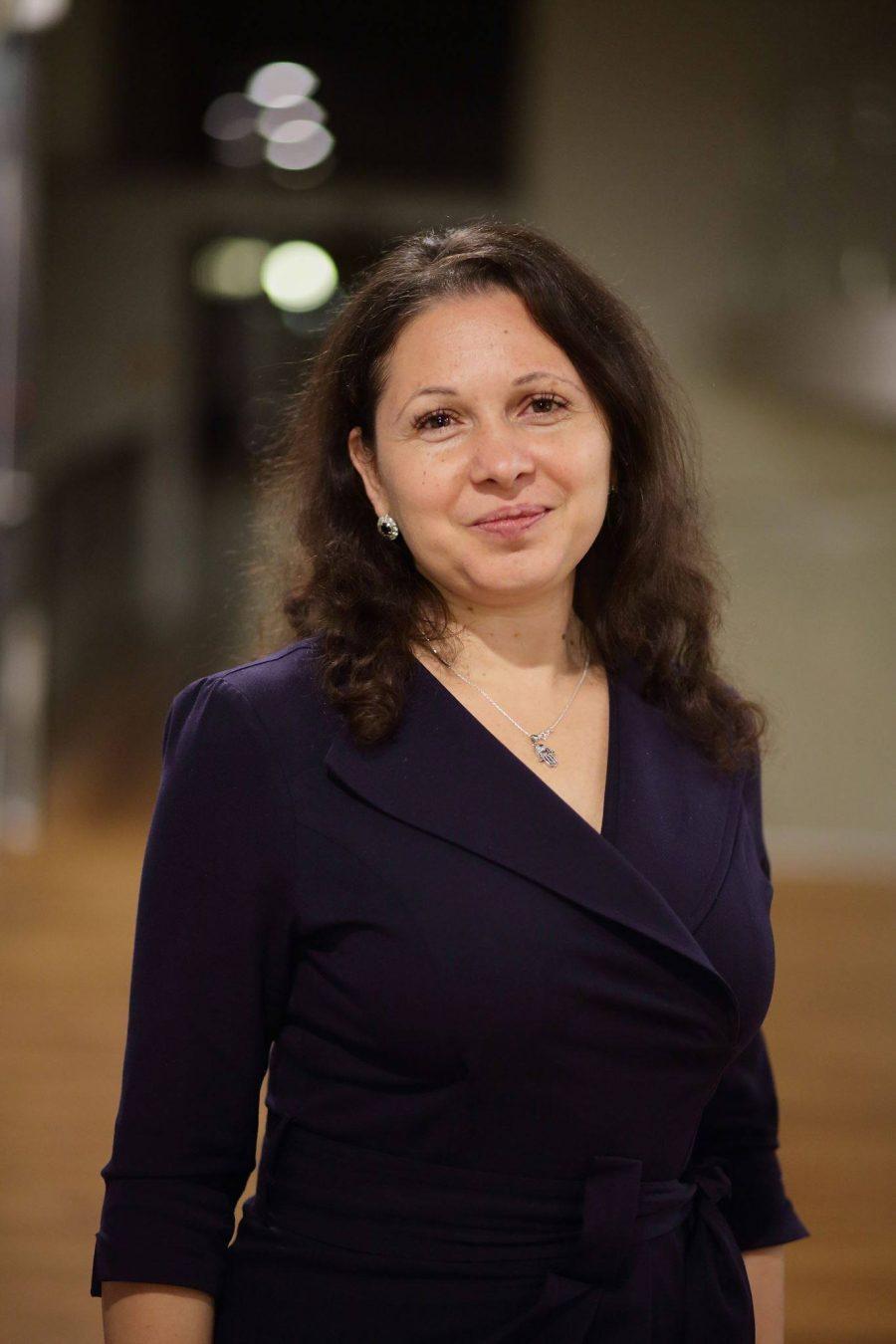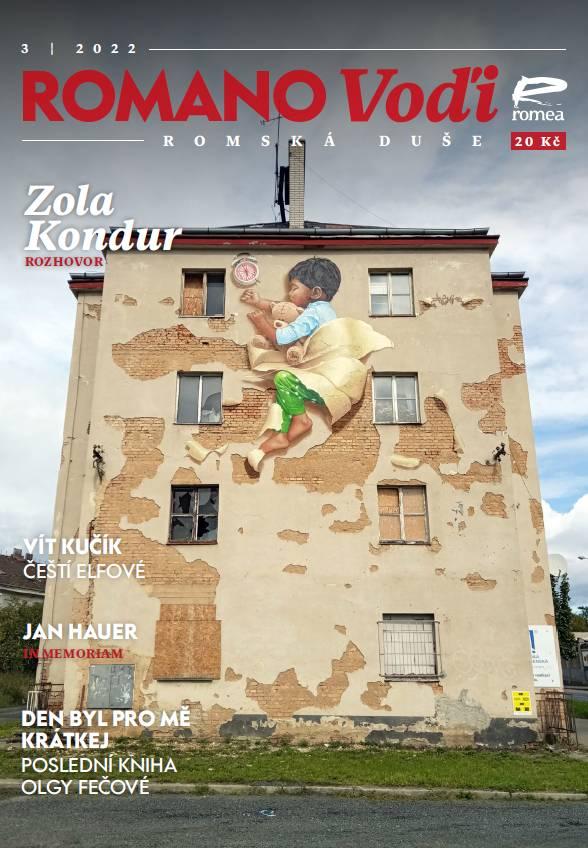Zola Kondur on the war on Ukraine: Everything can collapse at any moment

She is the co-founder of Chiricli, a nonprofit organization aiding the Romani minority in Ukraine, she lobbies for women's rights in the Parliament there, and she is currently coordinating the Romani projects at the Council of Europe in Strasbourg, France. She has also worked for the European Roma Rights Centre (ERRC) on drafting anti-discrimination legislation and as a coordinator of legal aid for members of the Romani minority.
During the 1990s, her father established one of the first nonprofit organizations dedicated to Romani people in Ukraine. For Zola Kondur, aiding others is an integral part of her life.
The Russian invasion of Ukraine has dramatically interfered with her work. She spoke with Jana Donovan of Romano vod’i magazine about the current situation.
Where have I caught up with you now?
From the beginning of the war I have been with my mother and sisters in Strasbourg, in France. The decision to leave Ukraine after the war broke out was quite difficult for us, but we believed we would be able to aid others more effectively from here. At the beginning of the war we didn’t know how the Internet would work or whether we would have an opportunity to communicate at all. So far, however, everything functions perfectly in Ukraine, which is amazing. All of my brothers and their families have remained there, though. They are assisting Romani people in the areas where the fighting is. They need different forms of support. We are in contact with mediators, intermediaries between us and other Romani people, we monitor the situation daily and thanks to that, we know what is happening there.
Does that mean your entire family is involved in delivering humanitarian aid?
I have five siblings, and helping others has always been a common part of our lives. We grew up in the south of Ukraine in a Romani settlement in the town of Izmail, near Odesa. My father was the unwritten leader of the community, the go-between and negotiator for the Romani settlement dwellers with the local authorities. However, he also helped in the area of education or finding medical aid. People would come find him at 6 AM to ask for his assistance. When a new law was promulgated in Ukraine in 1993 about nonprofit organizations, my parents decided to establish one.
That was one of the first nonprofits in Ukraine that decided to aid the Roma. What did your parents focus on?
Their main aim was to assist Romani children with accessing education. I was 18 and I had just completed my first year at the Faculty of Pedagogy in Izmail. I helped my father set up a center for Romani children, we called it “Sunday School”. Basically it was a preschool, and we also taught English. Many children did not want to transfer into the state schools because they really liked our school. However, we were not accredited for education, we just did our best to prevent the Romani children from being assigned to “special schools”, which was the common practice at the time in Ukraine. We wanted those children to have a chance at going to university one day. My parents also helped women who found themselves in difficult situations. Most of our family members were involved in all these activities.
Zola Kondur (1975) is a graduate of the Faculty of Pedagogy in Izmail, Ukraine. She is a co-founder of the nonprofit organization Roma Women’s Fund “Chiricli”, she lobbies for women’s rights in the Parliament of Ukraine, and she works as a coordinator of Romani projects at the Council of Europe. She has also worked for the European Roma Rights Centre (ERRC) on drafting anti-discrimination legislation and as a coordinator of legal aid for the Romani minority.
You yourself later became the co-founder of another nonprofit organization.
I had already co-founded the Roma Women’s Fund “Chiricli” in 1997. First it was registered as a local nonprofit organization in Ukraine and then in 2004 as an international nonprofit. Its aim is to support Romani children, families, and women, to combat segregation, and to guarantee legal protection both internationally and nationally. In 2011, with the support of the Council of Europe, we began training mediators in Belarus, Moldova, and Ukraine. Originally we had 14 mediators, today we have 74. The mediators work in many places all over the country, and thanks to that, the Romani movement in Ukraine has absolutely transformed itself.
How has your work changed after 24 February, after Russia invaded Ukraine?
In the very beginning, fear and stress played an enormous role. We didn’t know what to do. However, we had to quickly collect ourselves and start functioning. Our mediators were genuinely unbelievable, from the very first moments they did brilliant work both inside and outside Ukraine. Thanks to that, the Romani people were the first of the refugees to receive assistance. Given the situation, local nonprofit organizations transformed their own programs and projects to meet people’s urgent needs. People were evacuated, given humanitarian aid and accommodation. By contrast, it was much more difficult for the international organizations to adapt themselves to the situation that had arisen. The Council of Europe, however, was the first organization to hold online consultations for Romani people from Ukraine.
Did you believe, before the invasion, that the worst would come to pass and that Putin would actually invade Ukraine?
It was quite difficult to believe that. Up until the last moment, nobody wanted to believe it. Naturally social media was full of warnings, we were receiving different messages about what to buy, what to stock up on, how to prepare.
Once I went to the supermarket, but when I walked in, something in me rebelled and said to myself “No, I’m not going to do any such thing”, and instead I bought a chocolate cake to take home. I was unable to accept, at that moment, that there could be a war, that I had to begin preparing for it. Two weeks before the invasion, though, I had already prepared a bag with all our important documents. I did not believe war would really begin until after Putin’s statement that he had given his assent to a “special military operation in Ukraine” on 21 February. That was an enormous shock. A great deal of stress followed, I began packing my winter things into the smallest possible bag. I called my son, who is in Berlin, studying at university, to tell him how to access my bank accounts in case something happened to me. I also began recording messages for him to tell him how much I love him. Those were quite difficult moments. Then I simply decided to go to him and give him all the necessary documents. I flew to visit him on 23 February. I was extremely nervous, and I was even more surprised by how calm everything was everywhere. People at the airport were behaving as if nothing was up, some were going on vacation. I wondered whether I hadn’t gone crazy, maybe I was stressing out for absolutely no reason.

The invasion began the next day, though. What was that like for you?
On 24 February I woke up at 4 AM and saw all the messages from people on my mobile phone about the Russian Army invading the territory of Ukraine. What followed for me was quite a difficult period and it took me an entire month to start feeling better. What aided me was that I began to concentrate on how and where I could assist others.
According to the available data, about 100,000 Romani Ukrainians, mostly children and women, have crossed into neighboring countries. That is a significant number if there are between 200,000 and 400,000 Romani people living in Ukraine. Are Romani refugees being treated the same as non-Romani refugees are?
There are cases of families of Romani origin who have not been treated the same as other refugees, but we decidedly cannot speak of a different approach to Romani refugees in all countries. When such cases happen, international Romani nonprofit organizations and those in the various countries do their best to aid them. Thanks to this, Romani nonprofit organizations have connected with each other and unified.
In association with Romani refugees the problem of dual citizenship is frequently mentioned because some also hold Hungarian passports. That then becomes an excuse to delay giving them humanitarian aid or to even refuse them assistance.
My personal opinion is that these people are Ukrainians and must be treated as refugees from Ukraine. If they are being refused humanitarian aid because they are dual citizens, that is discrimination.
Is it not the case, as is frequently alleged, that these people are just coming here to access state support for refugees?
Those people are in quite a difficult situation and they have had to make the very hard decision to leave their homes. The Government of Hungary, however, has done its best to convince people that Romani refugees want to access the support that belongs to the refugees from Ukraine. Romani refugees are refugees from Ukraine, though. To be a Romani man or woman is just an ethnicity. In Hungary, their view of all Romani refugees is that they are just people looking to access support. They are not treating them like refugees. This is an absolutely different approach than, for example, in Poland. That country is close to Ukraine, not just geographically, but also in terms of culture and language. Many refugees from Ukraine have gone there, and many Romani people are among them. Nonprofit organizations are taking care of them there, providing support to the refugees with enrolling children into local schools and helping them adapt to their new environment and language.

Reports have also surfaced of some Romani people from Ukraine becoming the victims of traffickers who are exploiting the financial support being provided. Do you know about such cases?
Personally I have not encountered any such case, but I would not be surprised if some Romani women were to become trafficking victims, because they are under great stress, they are traveling with their children and they are in quite a difficult situation. However, I haven’t heard any Romani families report anything of the sort. The Romani mediators are doing their best to warn women about traffickers and advise them what to do in such cases.
Has the Romani situation in Ukraine improved since the 1990s, when your father established his nonprofit organization?
Civil society has improved, as have the nonprofit organizations and their work and the communities of Romani people and their work. Children’s education matters more to Romani families now. Naturally problems persist with employment, and we still have Romani people without any documents, without passports, without birth certificates. Everything hasn’t miraculously improved. A strong civil society is important, though, because that is the path to change.
What are your wishes for the future?
Just for peace in Ukraine. In Europe, and in Ukraine. It is good to recall the concerns that prevailed chiefly at the beginning of the war, that if Ukraine loses, Russia will not stop and will keep going. Planning anything in my personal life is currently difficult for me, because this war has demonstrated to me that all plans and security in life can collapse in an instant. Stability, in our lives, is merely a phantasm. I am unable to make big future plans now, but I am doing my best to enjoy every day and to continue my support for Ukraine and to aid our Romani citizens. However, what I actually wish for very much is to return to my home and continue my life and my work there.
First published in Czech in the magazine Romano voďi. You can subscribe at www.romanovodi.cz (Czech only)
